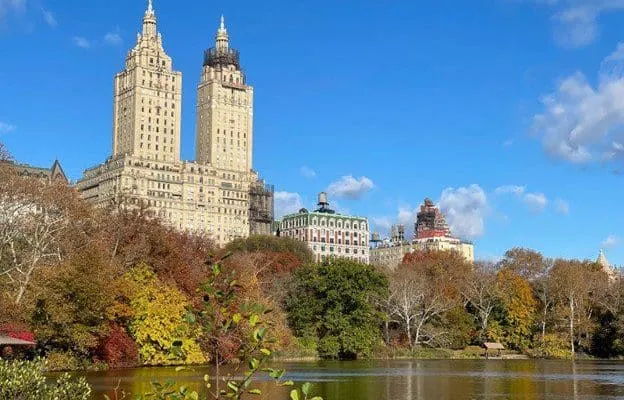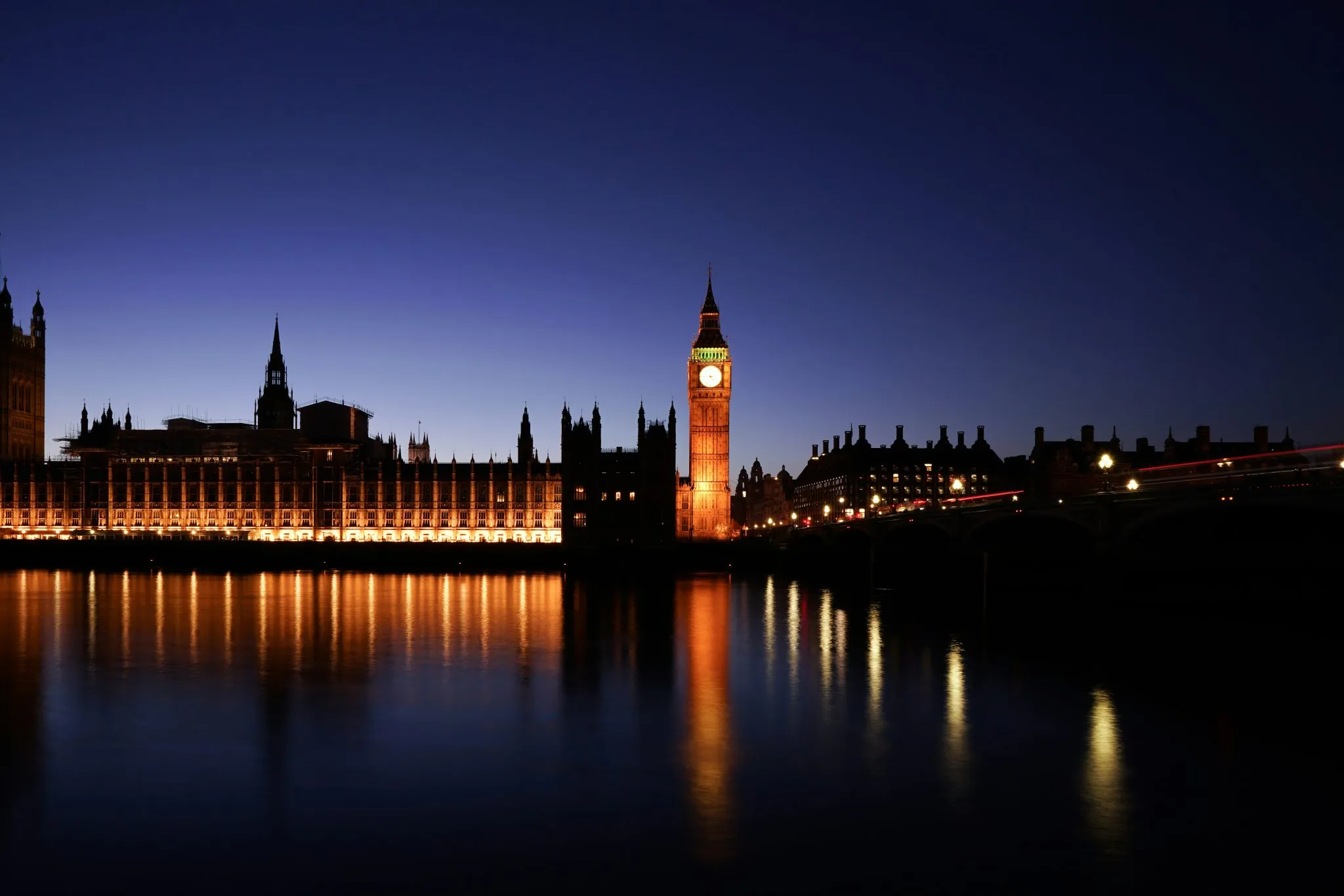B1/B2 Visa Rejection Reasons
Thousands of foreign nationals submit applications for the B1/B2 visa each year, many of which get rejected. U.S. immigration law outlines various criteria that can lead to the denial of a visa application, and it’s important to be familiar with them to minimise the risk of rejection.
For more information on the B2/B2 visa, including how to apply and increase your chances of approval or what steps to take after a visa denial, call us at +2342013438882 or +44 (0) 3316300929.
Read our 1001 reviews
Do you Need Help with Your Application?
Our team of immigration experts specialises in assisting Nigerians with US visa applications, also handling renewals and rejections. We provide accurate and reliable information on up-to-date requirements, amongst other related conditions, ensuring that you have a clear understanding of all aspects involved. Let us handle every step of your application and make the process as stress-free as possible.
Nigerian Emigration
For Nigerian emigration matters, please call +2342013438882 or +44 (0) 3316300929
Other Immigration and Emigration Matters
For immigration/emigration to/from other countries, please call:
US – +1 844 290 6312
Ireland – (+353) 061 518 025
UK – (+44) 333 4149244
B1/B2 Rejection Reasons: An Overview
The B1 and B2 visas allow individuals to enter the United States temporarily for business purposes, medical appointments, or tourist visits.
Applicants for these visas are typically required to go through an interview with a consul at a U.S. embassy or consulate. In line with the Immigration and Nationality Act (INA), the consular officer holds the exclusive authority to approve or deny visa applications.
In other words, the consul decides whether an applicant is eligible for a visa after a thorough review of each application. While most B1/B2 visa applications are approved, many get rejected for different ineligibility reasons.
Visa ineligibilities are either temporary or permanent, and applicants who receive a denial based on temporary ineligibilities can reapply for a visa when there are significant changes to their circumstances. In contrast, applicants with permanent ineligibilities can only reapply if the Department of Homeland Security grants them a waiver.
Common Reasons for B1/B2 U.S. Visa Denials
A B1/B2 nonimmigrant visa application will be denied if an applicant cannot establish their eligibility due to any of the following reasons:
- Not meeting the visa requirements
- Submitting an incomplete application or lacking supporting document
- Engaging in fraud or misrepresentation
- Having a history of unlawful presence in the United States
- Falling under other ineligibility grounds of the law.

Not Meeting the Visa Requirements
The B1/B2 visas are temporary, nonimmigrant visas that allow holders to be in the U.S. for six months. As such, the main requirement is that every applicant must show that they do not have ‘immigrant intent’ and plan to leave the country when their visa expires.
To overcome the presumption of immigrant intent, you must convince the visa officer that you have strong ties with your home country and do not plan to migrate to the U.S. permanently. Some examples of compelling ties with your home country include having:
- A job
- A family such as a spouse, children, or dependent relatives, or being engaged to be married
- Assets such as property or land
- A business
You will be required to provide some documents to prove that your stay is temporary. These may include your travel itinerary, evidence of hotel reservations, and flight tickets.
Another important requirement includes proving that you have sufficient funds to cover your stay in the U.S., and you must provide your bank statements. Failure to provide convincing proof that you are travelling for short-term reasons will lead to a visa denial.
Also, during the interview, your answers must demonstrate that you have no intent to migrate to the U.S. For instance, if you say you can’t wait to enter the country to begin working or marry your girlfriend, your B1/B2 visa application will likely be denied.
Submitting an Incomplete Application or Lacking Supporting Documents
If you submit an incomplete application while filing Form DS-160 or do not provide the required supporting documents, your visa application will be denied under section 221(g) of the INA and initially be placed on hold.
You will receive a letter telling you what information or documents are missing. The embassy or consulate will give you one year to submit the necessary information. Otherwise, your case will be dismissed, and you will need to reapply again.
It is important to prepare your documents and review the application form before submitting it to avoid filing an incomplete application.
Engaging in Fraud or Misrepresentation
If you attempt to obtain a visa by committing fraud or misrepresenting a fact, your visa will be denied. The following actions are considered fraud:
- Trying to cover up a past criminal conviction
- Hiding or denying that you have a relative in the U.S.
- Not declaring a past visa refusal
In any of these cases, the consular will deny your visa application. This type of ineligibility is permanent, and you may not be able to reapply in the future.
Having a History of Unlawful Presence in the United States
Your visa application may be denied if the consular discovers you have a history of immigration violations. For instance, if you were previously granted a U.S. visa and remained in the country without authorisation after your visa expired.
Another example is if you previously entered the country without authorisation from Customs and Border Protection. In such cases, it will be challenging to convince the consular officer assessing your visa application that you will not violate the terms of the new visa as well.
Furthermore, if your unlawful presence in the U.S. adds up to 180 days or more, you will face an automatic entry bar and will not get a visa for three years after your departure. The bar of entry goes up to 10 years after departure if you were unlawfully present in the U.S. for more than a year.

Falling Under Other Ineligibility Grounds of the Law
Overview
There are grounds for ineligibility or inadmissibility under the U.S. immigration law that can lead to a visa denial. These visa ineligibilities include:
Health-Related Grounds
Nonimmigrant visa applicants in the following categories are ineligible to obtain a visa to the U.S. due to health-related issues:
- Applicants diagnosed with an infectious disease of public health significance.
- Applicants who cannot provide documentation of receiving vaccinations for diseases such as mumps, measles, rubella, tetanus, polio, influenza type B, hepatitis B, diphtheria toxoids, pertussis, and other recommended vaccines by the Advisory Committee for Immunization Practices.
- Applicants with a physical or mental disorder that may threaten the safety, welfare, or property of themselves or others.
- Applicants identified as drug abusers or addicts.
Criminal Grounds
Applicants who have committed the following crimes will be denied admission to the United States:
- A crime involving moral turpitude.
- An attempted violation of any state or international law related to controlled substances.
- A conviction of two or more offenses, with a combined prison sentence of five years or more.
- Serious criminal offences, even after receiving immunity
- Severe violations of religious freedom.
- Illicit trafficking and being a spouse, daughter, or son of such traffickers.
- Committing or conspiring to commit human trafficking offences.
Security Grounds
A visa application will be denied if the authorities suspect that the applicant is trying to enter the U.S. to carry out criminal activities that are a risk to the security of the United States.
Some of these crimes include espionage, terrorism, trying to overthrow the government, and being a member of a group or organisation whose activities are a crime in the U.S. Additionally, spouses and children of individuals with these security concerns may be denied entry into the U.S.
Public Charge
The consul will deny a visa application under INA section 212(a)(4) if they determine that an applicant will likely become primarily dependent on the government for financial support at any time during their visit.
The public charge finding is a temporary ineligibility, and applicants can reapply for the B1/B2 visa when there is a change in their circumstances.
Miscellaneous
The following individuals are inadmissible into the United States and will not be granted a visa:
- Those coming to the U.S. to practice polygamy
- A guardian or dependent of an inadmissible person
- Those who support abductors
- Those who renounced their citizenship to avoid taxation
What to Do After a Visa Rejection
Overview
If you receive a visa rejection, you will be told under which section of the law you received the denial. Depending on your circumstances, you will have two options:
- Apply for a waiver of ineligibility
- Reapply for the visa
Apply For a Waiver of Ineligibility
When you receive the denial, the consular officer will inform you if you are eligible to apply for a waiver to overcome your ineligibility.
However, the decision to approve a waiver for a visa applicant lies with the Department of Homeland Security. In general, to get a waiver of ineligibility approved, you must:
- Have an ineligibility for which there is a waiver
- Be fully qualified for the visa you applied for, except for that specific ineligibility.
- Be recommended by the consular office to the Department of Homeland Security for a waiver.
If you qualify for a waiver, the consular officer will provide you with guidance on how to apply for one. You must fill out Form I-601, Application for Waiver of Grounds of Inadmissibility, and mail it directly to a U.S. Citizenship and Immigration Services (USCIS) Lockbox facility.
If the waiver is approved, you may be issued a visa.
Reapply for the B1/B2 Visa
If you receive a temporary ineligibility, you can reapply for the B1/B2 visa if your circumstances change. However, you must submit a new visa application and pay the visa application fee again.
After reapplying, you will be required to attend an interview at the U.S. embassy or consulate, where you must demonstrate that you meet the visa requirements

How Can IAS Help?
The decision to approve or deny a travel visa rests solely with the U.S. government. Unfortunately, visa denials do occur. However, IAS can help you throughout the U.S. B1/B2 visa application process and increase your chances of a successful visa application.
Our lawyers are experts in U.S. immigration law, and they can guide you through the requirements, help you gather the necessary documents, present a robust application on your behalf, and prepare you for the visa interview. We will also address any concerns or issues arising during the application process.
Call us at +23413438882 or on +44 (0) 3316300929 to get started. You can also get in touch with us via the online contact form.
Table of Contents
Table of Contents will appear here.Table of Contents
Table of Contents will appear here.Legal Disclaimer
The information provided is for general informational purposes only and does not constitute legal advice. While we make every effort to ensure accuracy, the law may change, and the information may not reflect the most current legal developments. No warranty is given regarding the accuracy or completeness of the information, and we do not accept liability in such cases. We recommend consulting with a qualified lawyer at Immigration Advice Service before making any decisions based on the content provided.
Services we Provide
Frequently Asked Questions
A visa refusal means that your application is placed on hold until more information is received or for further administrative processing before a decision can be made. For example, a refusal under section 221(g) may require additional background checks or supporting documents.
On the other hand, a visa rejection means that the consular officer has determined that you are not eligible for the visa and thus rejects your application.
A denial under section 214(b) of the INA implies that you do not have sufficient evidence to demonstrate strong ties to your home country. You may reapply for the visa if there are significant changes to your circumstances since your last application.
It will depend on your circumstances. If your ineligibility is permanent, but the consular officer determines that the rest of your application is satisfactory, they may advise you to apply for a visa waiver.
No. The application fee that you paid is non-refundable.
















